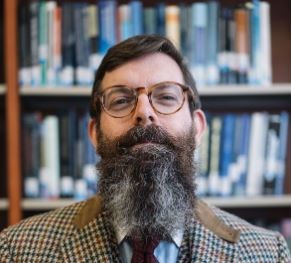THUNDER BAY — Lakehead University law professor Ryan Alford has won the right to take a case to the Supreme Court of Canada.
The court has agreed to consider whether federal legislation limiting members of a parliamentary committee from speaking out is unconstitutional.
Alford believes it is, and has been working to persuade the courts to validate his view since 2018.
"I'm just really heartened by the fact that it seems as if this issue is finally receiving the attention it deserves, given that it's such a remarkable departure from certain fundamental principles of our constitutional order," he said in an interview Wednesday.
His concern focuses on the National Security and Intelligence Committee of Parliamentarians Act, enacted in 2017, which established a committee of MPs and senators from various parties that acts as a spy watchdog and has access to highly classified information.
All members of the committee hold Top Secret security clearances.
Parliamentarians ordinarily enjoy immunity from prosecution for any statements they make in the House of Commons or Senate, but under the NSICOP Act, immunity does not necessarily apply if information obtained while exercising their role on the committee is disclosed.
They risk prosecution under the Security of Information Act, and could be imprisoned for up to 14 years.
Alford wants the NSICOP Act declared invalid on the grounds it restricts the constitutionally-protected rights of parliamentary privilege and freedom of speech and debate in Parliament, and because it was enacted without an amendment of the Constitution Act, 1867.
Federal lawyers maintain the constitution does give Parliament the authority to circumscribe the parliamentary privilege of freedom of speech.
Alford began his challenge to the NSICOP Act in the Superior Court of Justice in Thunder Bay, where he won a favourable ruling in 2022.
But in April of this year, that decision was reversed by the Ontario Court of Appeal.
A couple of months later, NSICOP grabbed national headlines when it released a heavily redacted report that said some members of Parliament had been "semi-witting or witting" participants in schemes by governments of countries such as China and India to meddle in federal politics.
No MP or senator alleged to be involved in these activities has been identified publicly.
Alford told Newswatch he's troubled by the power the Prime Minister has to silence the committee and redact its reports.
"Its members are censored at will by the Prime Minister, and they're subject to the most extreme sanctions imaginable if they disagree with the decisions of the Prime Minister about how their reports should be redacted...It doesn't come from the fact that it's national security information, or classified information, or anything of that nature. It's purely in the discretion of the Prime Minister to say."
He expects the Supreme Court will hear arguments on the matter in May or June.
"I think they're going to take this appeal on so they can really analyze this issue in great detail. So I expect them to look at it from all angles, to take submissions from a broad range of intervenors."
Alford believes the Speaker of the House of Commons, the Speaker of the Senate, and numerous civil liberties organizations will all want to weigh in.
